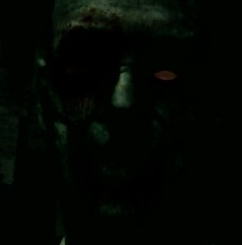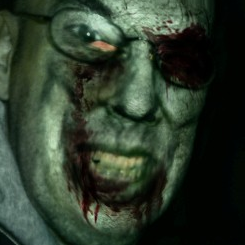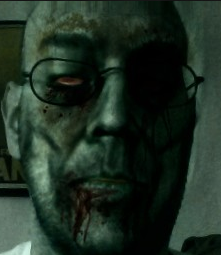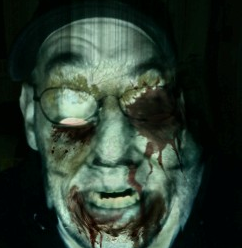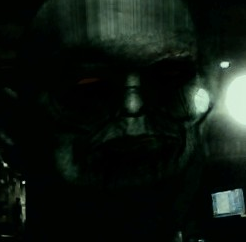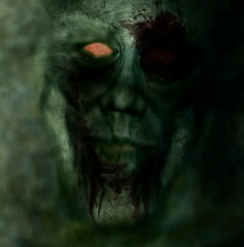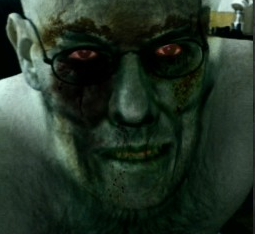Why is it that so many of my characters end up losing their shit, taking their turn for the worse, in a bar?
“You don’t look so good, friend,†Watson said suddenly. I looked up from the paper which I’d only been pretending to read and realized he’d been staring at me for some time. The jubilation I’d felt at being given a zombie-free bill of health had given me adrenaline enough to make it to the bar and get that first beer, but it was wearing off, and when Watson commented on my appearance, I suddenly felt the full weight of the cold again.
“Yeah,†I said, using humor to as a shield as I usually did, “I know. I never do.â€
“That’s not what I mean.†He took a step back, nervously. “You look really… not good.â€
I forced a chuckle. “Oh, that. Don’t worry. Just came from the clinic. I’m clear.†I produced a printout of the test results that had been provided me on my way out of the church. “See?â€
Watson looked at the sheet skeptically but refused to come any closer. I slid it across the bar to him so he could get a better look. He examined the document, saw the official seal of the Department of Health in the lower right hand corner — there had been stories of fake lab results going around — then looked at the date, my name, the photo, the whole thing. He decided it was official enough and slid the paper back over to me. “Still, you might want to lay off the booze, yeah? Get some rest? Drink some OJ?â€
“Eh, I dunno. Lotta time…†I was having trouble forming sentences; finding the right words. “…booze all that helps. You know?â€
Watson rolled his eyes again. He certainly knew an alcoholic when he saw one. “Maybe you should get out of here.â€
“Nahh,†I slurred. “I’m good. Real good, you know? Make me….†I trailed off, I guess. Silence.
“What?†Watson asked.
I guess I blacked out, because I came to face down in the newspaper. Maybe he had a point. Maybe it was time to find my bed, get some good rest. Something in me, though, wanted more.
“Hot toddy,†I managed.
“No, pal, you’re done. Don’t make me call the cops, alright?â€
“It’s just a cold. A iddy biddy cold. Nothing worry about. Right?†But I knew I was losing it, and I wasn’t usually one to push this sort of thing. If I felt like crap, I felt like crap, and I’d rather take my lumps at home. Uncomfortable as it was there, I’d at least made myself a nest of sorts, and I knew I’d feel better being there. Still, there was something, inexplicably, making me want to stay.
“I’m just going to say this one more time, pal,†Watson said. But then he stopped. I think he saw something in my eyes. He decided to take a different tack. “Hey, it’s not that I don’t appreciate your business and your company, Zach†— he had seen my name on my lab result report, I guess. I remember being impressed that he knew my name — “it’s just that I’m worried about you. You might be clear of Westphail, but you look, no offense, like shit. And I don’t think another drink is going to help you.â€
I’m not sure how I remember what Watson said to me that day, since at some point, everything became blurry, words and noises blending into a constant buzz in my head. It’s entirely possible that my brain is just filling in the blanks, patching up the holes in my memory just so I can paint a more complete picture. I could just say that I passed out completely and woke up, confused and bewildered with no idea how I got there, and that’s more or less true, but there are bits and pieces of memories, flashes of images that tell parts of the story. I know I protested mightily, and I know that Watson had seen something that made him scared of me, or very concerned for me at least. That I had somehow turned into something that put me in a position of power where he was no longer insisting that I leave because I was bothering him, but that he was suggesting I go because he was worried; either about my health or a threat to his own. I know I passed out a few times, sometimes for just a second or two, sometimes for a full minute, maybe more. That I spilled what was left of my beer, that I demanded a hot toddy, another beer, a bloody mary, a Balvenie on the rocks. That I knocked over bar stools. That Watson threatened to call the police and was deterred by my protests, but eventually his fear/concern outweighed anything I could have said to him and that the cops were called. I’m pretty sure that being overworked as they were, and rather loosely maintained what with all that was going on anyhow — much of the police force had been dissolved as the world started to circle the drain; there was a greater focus on military policing, and “public safety†officers such as the guard at the church/medical center — that they never showed up. Finally, I must have passed out completely, and Watson himself laid me over his shoulder — he was not a big or burly man, his appearance apparently hid strength I didn’t know he had — closed up shop, and taken me to my room. To his credit, he could have just dumped me in the gutter, or thrown me in the alley and been done with me, but he didn’t. He saw me safely home, and I woke up the next day in my bed.
